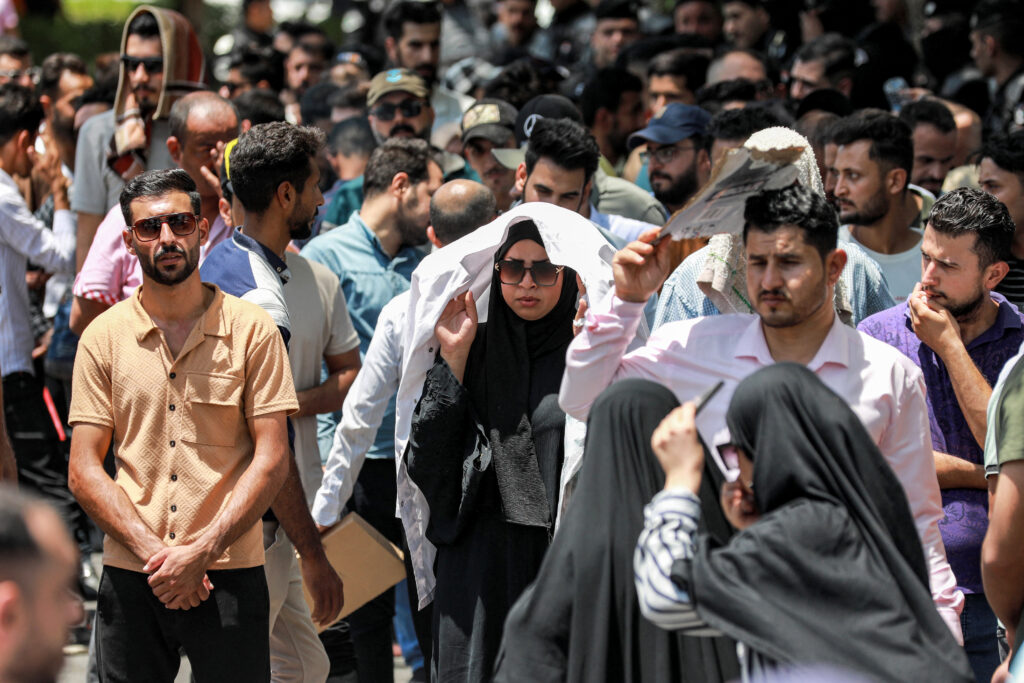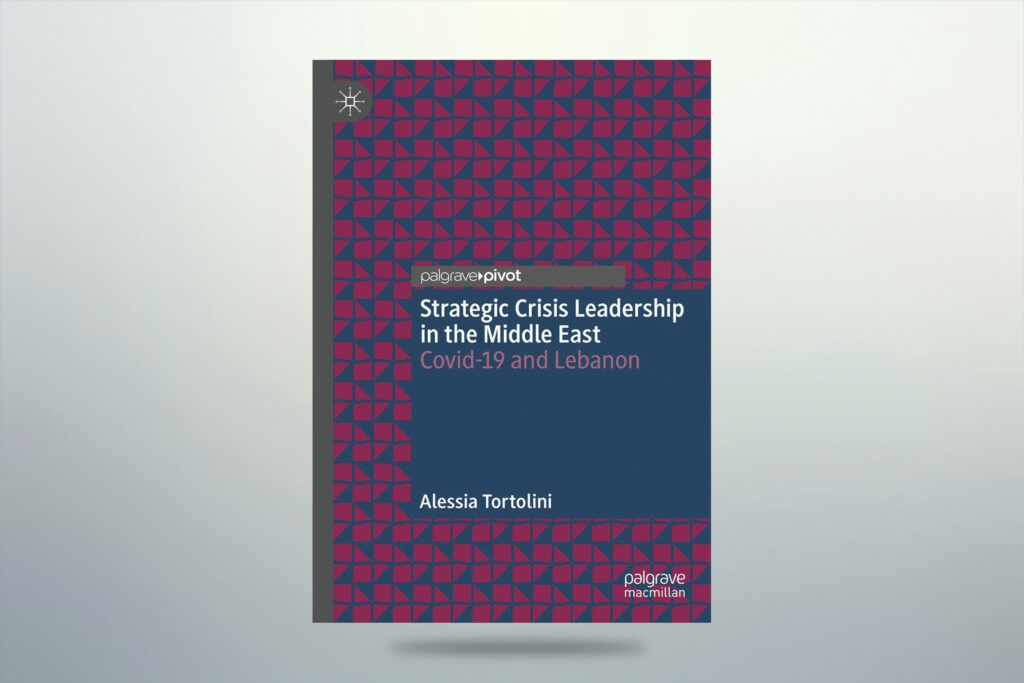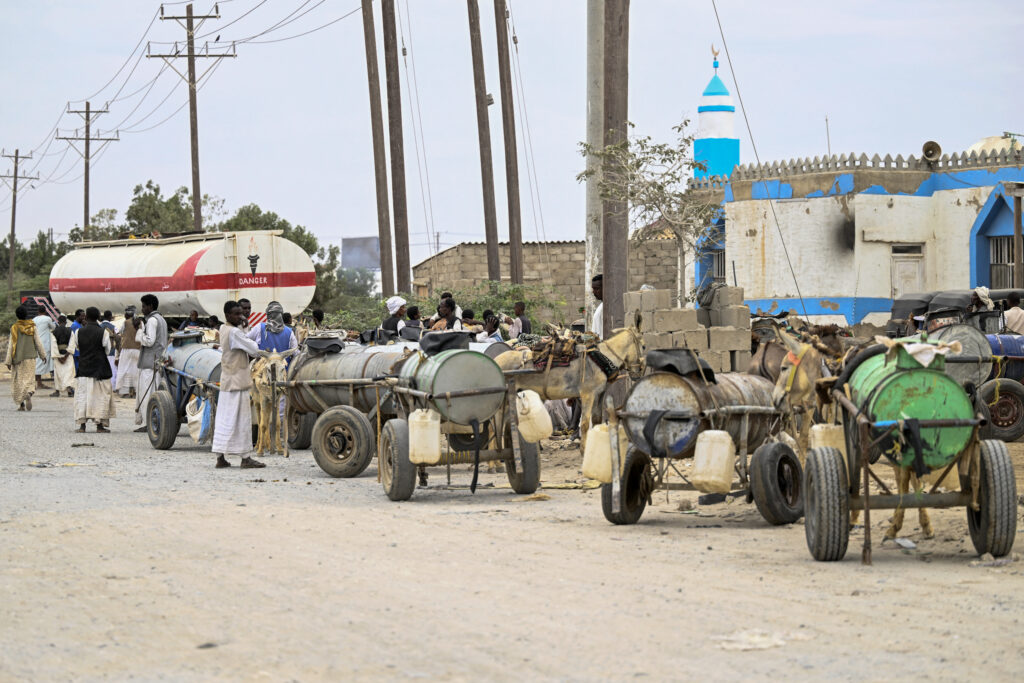Rule of Law Series[1]
By David Mednicoff[1]
Introduction
Detailed, country-specific and cross national knowledge about the meanings and mechanisms of the rule of law is surprisingly limited (e.g., Carothers 2006, Chesterman 2008), considering that the rule of law likely ‘stands in the peculiar state of being the preeminent legitimizing ideal in the world today’ (Tamanaha 2004, 4). Indeed, the concept has been used in recent decades without a lot of definitional clarity (Kleinfeld 2012), or in a way that brings together a variety of meanings that are not necessarily compatible (Mednicoff 2005). Most specific research on the rule of law derives from Western experience, where the emphasis is on the centrality of independent judicial review, or, less specifically, the subordination of rulers to law, a ‘government of laws, not men,’ as John Adams inscribed in the Massachusetts State Constitution (Part I, Article 30). Yet the role of judges remains rather constrained in many societies, and, even where it’s important, depends on a broader range of legal actors to function effectively.
Yet, as I discuss in a different essay in this collection, what the rule of law means is much more than an academic issue. The rule of law is central to all countries, perhaps even more so in regions where it can be fragile, such as the Middle East, or areas where diverse peoples live in situations of especially rapid changes, such as the Arabian Gulf. As Qatar and similar countries have learned through their rapid pattern of globalized growth, misunderstandings and miscommunications about law abound.
The government of Qatar appreciates the importance of the rule of law. Indeed, law is central to all four of the major developmental pillars of Qatar’s National Vision, the human, social, economic and environmental. Qatar’s National Vision begins with a commitment to modernizing and preserving the country’s traditions. This commitment is vital for the particular form legal growth takes in Qatar if it is to effectively uphold Islamic values and incorporate local traditions. Yet unpacking what this legal growth means and how it links to broader contestation around the rule of law in transnational terms is necessary to realize this commitment.
The Research Project
For this reason, my research team and I undertook the first detailed study of the major meanings and functions of the rule of law in Qatar among present and future likely legal stakeholders, through a focus on legal professionals and law students. The major point of this work has been to highlight major meaning clusters and evolution in the rule of law in Qatar in order to shed light on, and suggest ongoing legal development strategies for maximizing the country’s ability to harness law in locally-appropriate ways that can enhance its National Vision. To this end, the project also included attention to another case comparable to Qatar in which similar data could be acquired, Kuwait, as well as to questions of meaning around the rule of law in the Arab world and transnationally more generally. This essay provides context, and highlights some basic findings around basic clusters of meaning for the rule of law in Qatar and comparative perspective. It is worth underscoring that rich data on what the rule of law means in a particular social context is unusual for most countries, and especially scarce in non-Western Arab Islamic countries.
The Research Methodology and Some Basic Findings on the Rule of Law
Central to the project, which ran from November 2013-2016, were detailed interviews in Arabic and/or English with diverse legal stakeholders in Qatar and Kuwait. These included private and public sector lawyers, prosecutors, administrators, and legal NGO workers, whom we found through research and recommendations of legal stakeholders. The interviews used the same question template, and allowed for open-ended responses.
A second key portion of the project included creating a unique 8-page survey with numerical/quantitative and open-ended questions on the rule of law. This survey was then administered to 859 students in law and public policy in Kuwait and Qatar, specifically in the Qatar University College of Law, the Qatar University Department of International Affairs, the Qatar Faculty of Islamic Studies policy program at the Hamad bin Khalifa University and the Kuwait University College of Law. Surveys were given to students specifically because of their dual status as relatively close to the broader population in their pre-university background and likely to become the core of future legal stakeholders, as well as the challenge of getting legal professionals to complete a long, standardized survey. We surveyed students in required courses for each year of the program, and in equivalent female and male student classes,[2] in an effort to get a sample as representative as possible across the programs as a whole and among each of the four years for students’ BA programs. This method of purposive sampling, though not statistically representative, reached a wide range of relevant students, with high levels of cooperation and buy-in from their professors. Research staff were careful not to give suggestions as to how students should answer questions when clearing up the few misunderstandings that occurred about what the questions asked.
In addition to in-depth interviews and surveys with legal professionals and students, respectively, qualitative data around the rule of law in Qatar, Kuwait and the GCC (Gulf Cooperation Council) was assembled. Some specific laws and the constitutions of these countries are generally available. Therefore, the research team focused its efforts on gathering and analyzing legal textbooks, and media accounts and arguments about the rule of law in Qatar and related countries. The data we collected this way complemented, and provided even broader, contextualization for, the interviews and surveys we processed.
Here are some notable conclusions from the research:
Perceived meanings of ‘the rule of law’ are diverse. A central expectation, that the rule of law is deployed without a central, common meaning, was borne out in the diversity of responses both students and legal professionals gave to open-ended questions on what the term means, as well as questions students were asked about what possible components of the rule of law were most significant to them. Indeed, the research team noted that a significant minority of law students, particularly first-year students, were unsure about what the term meant altogether.
That said, three possible components of the rule of law that students, who were given a set of ranked questions, considered most important were: equality under the law for all, the administration of justice, and principles drawn from Islamic law/shari’a. A definite minority of students in the three undergraduate samples from Kuwait University College of Law, Qatar University College of Law and Qatar University Department of International Affairs wrote in response to an open-ended question that a primary meaning of the rule of law was that laws should constrain everyone, and specifically, if less commonly, that government should not be above the law.
However, ‘government limited by law’ generally ranked lowest in comparison to other suggested core concepts in closed-ended questions. Thus, equality under law seems crucial as a component of the rule of law to students, but the extension of this equality to subordinate leaders specifically to law is of less clear importance. In short, young Gulf-based students do not prioritize the notion that the rule of law’s prime meaning as the subordination of state leaders to legal rules, nor do they focus on judicial review. This is very different from what we would expect in other societies, and calls attention both to the importance of gathering data on the rule of law in particular societies, and to questioning whether academics’ assumptions about the rule of law’s prime meanings are necessarily accurate. Is it possible that, even in countries like the US, in which limitations to government authority established through law might seem crucial, key segments of the population might not share this sense?
As other pieces in this collection discuss at greater length, students in Qatar and Kuwait are consistent in generally looking to Islam as a, or the, key source of legitimacy for law. This result is consistent across all three undergraduate student samples, and diverse questions that rank Islam in comparison with other possible core meanings of the rule of law and ask without comparison how important Islam is and should be to the rule of law in Qatar or Kuwait.
In contrast, a sizable minority of students, between 20 – 30 percent, considers international law too influential in their Arab Gulf country, a result that is reflected in questions ranking the influence of different understandings of the rule of law, in which international law is considered the least important by a majority in their country.
These results have a number of implications, and reflect a variety of developments. As for Gulf students’ low value attached to international law, it may not actually be surprising that Qataris and Kuwaitis value a local grounding for the rule of law over a transnational one, particularly in the charged post-colonial context of the contemporary Arab world. At the same time, the disconnect between the prevalence of international legal actors and discourse in highly globalized settings like the GCC and citizens’ sense of legal legitimacy helps explain, and helps account for, the often competing and unproductive discourses around issues like workers’ rights or citizenship possibilities for immigrants. Moreover, the reality of countries like Kuwait and Qatar is that their recent rise from relative backwaters to global hubs has meant both that international legal standards are in fact very important for these countries’ legal development and that the influence of shari’a, as in most Arab countries, is rather circumscribed.
In short, data from students underscore that there are likely to be real tensions around the proper sources and content for the rule of law in GCC countries. The data help make sense of the complex and contentious politics of the rule of law that have emerged along with global influence for countries like Qatar and Kuwait.
Members of the legal establishment interviewed in Qatar and Kuwait have a much more nuanced appreciation than our student samples of the actual impact and importance of international legal influences in their countries, whether this is in terms of the prevalence of Egyptian legal experts in formulating, or serving as judges for, significant portions of these GCC countries’ laws or the transnational mosaic nature of the countries’ legal establishments and enforcement bodies. Nonetheless, tensions among local citizen and non-citizen lawyers manifest themselves in terms of how necessary and fair it is for foreign lawyers to practice in front of local courts. Foreign lawyers frequently voice skepticism regarding the qualifications and competence of Qatari and Kuwaiti lawyers, which is mirrored by local lawyers’ concerns that their foreign counterparts do not understand or appreciate the legal context of the countries in which they work and, even, might be exploiting the relative youth of GCC legal systems purely and unnecessarily for material enrichment.
In general, Kuwaiti and Qatari students, and legal professionals, voice strong confidence in the efficacy of the rule of law in their countries. A majority of over 60 percent of students in each of the undergraduate populations believe that the rule of law in their country is more effective than the rule of law in the other Gulf countries, and the Arab world generally. Approximately 40 percent in the samples agree that law in their country works better than law in the European Union and the US. Students’ confidence is strong for all major legal institutions, including courts, police, prosecutors and most social institutions. The most notable negative perception is that students, when asked to assess how much various social institutions aided the rule of law, generally do not believe that their secondary schools contributed to the establishment of the rule of law in their country. This could be related to off-the-record reports of drug use and other illegalities in GCC secondary schools, broader concerns about the quality of education, an explicit lack of civic education modules in the school systems, or some combination of all three. In any case, both students who took the surveys and legal professionals who were interviewed concurred that crime in their societies is not a major problem, reflecting the relatively low actual reported incidents of crime in Qatar and Kuwait.
Most students and legal professionals are aware of concerns that non-citizen workers in low-status jobs are not always perceived to be treated equally, and support equality under the law for all residents. Moreover, some students who are citizens voiced specific ideas or issues underscoring how the legal system could be more equal. A minority of student respondents in both Kuwait and Qatar articulated mistrust towards some non-native workers, and blamed them for crime. Nonetheless, the overall image from the surveys is of a population of students well-aware of concerns around legal equality for all residents, sometimes in nuanced ways.
Questions of confidence and perceptions notwithstanding, the interviews paint a generally consistent image of a legal system in Qatar that functions competently and of laws that are generally known. At the same time, the recent nature of legal systems in Qatar and Kuwait is evident in such aspects as their dominance by Egyptian jurists and judges and the lack of established standards or knowledge-based standards to establish licensing credentials for lawyers. Several knowledgeable legal professionals point to the challenges courts, lawyers and police officers face trying to understand and resolve conflicts among the diverse range of residents in the GCC’s extraordinary linguistic and multicultural milieu.
In sum, the rule of law and the legal system in Kuwait and Qatar function in the growing, globalized way that one might expect in societies that have been nations for less than 50 years but have been propelled by oil wealth to transnational prominence. If the rule of law in these GCC states is more evident than Western-centric discussions of legal systems might assume, tensions remain around how the system should evolve, how much it can or should be responsive to natives’ strong Islamic identities and other aspects of local culture and how to socialize further the rule of law in societies that are so highly fluid, exposed internationally, and polyglot.
This research, which is discussed in greater detail in other contributions to this collection, is meant not only to illuminate very important issues regarding how law functions and is viewed in diverse Arab countries. It should add to larger discussions of the meanings of the rule of law, and its contested politics, in the world more generally.
David Mednicoff is a Professor of Public Policy at the University of Massachusetts – Amherst. He is also Chair of the iPlatform Committee of Academic Fellows as well as iPlatform Director and Senior Academic Fellow. Mednicoff is a scholar of the rule of law, politics and public policy in the Middle East and elsewhere. He has received various teaching honors including a university-wide Lilly Teaching Fellowship and a US national prize for innovative teaching related to the US after 9/11. He was a Fulbright Senior Scholar in law in Qatar in 2006-2007 and a Research Fellow in 2010-2011 in the Dubai Initiative at the Kennedy School of Government at Harvard University. He was awarded a BA from Princeton University and an MA, JD and PhD from Harvard University.
[1] All the contributions to this Insight are inspired by, and many of the individual authors supported by, Qatar National Research Fund’s National Priorities Research Program Grant 6-459-5-050, the Rule of Law in Qatar and the Arab Gulf Project. We acknowledge the invaluable assistance of Noha Aboueldahab, Sarah Kofke-Egger, Susan Newton, Gwenn Okruhlik, Lubna Sharab, Sylvain Taouti and RA’s at Qatar University and the University of Massachusetts-Amherst.
[1] I am grateful to the Qatar National Research Fund for its support for NPRP grant 6-459-5 050, as well as to Noha Aboueldahab, Susan Newton, Gwenn Okruhlik, Lubna Sharab, Sylvain Taouti and RA’s at Qatar University and the University of Massachusetts-Amherst for their invaluable contributions.
[2] At Kuwait and Qatar Universities, equivalent course sections are offered to female and male students, since women and men are not permitted to share classrooms at the undergraduate level. Courses in public policy at Qatar Faculty of Islamic Studies (QFIS) are post-graduate, and co-educational. Surveys were given to students at Qatar U. in March 2014 and December 2015, at QFIS in November 2014, and at Kuwait University in December 2015.





